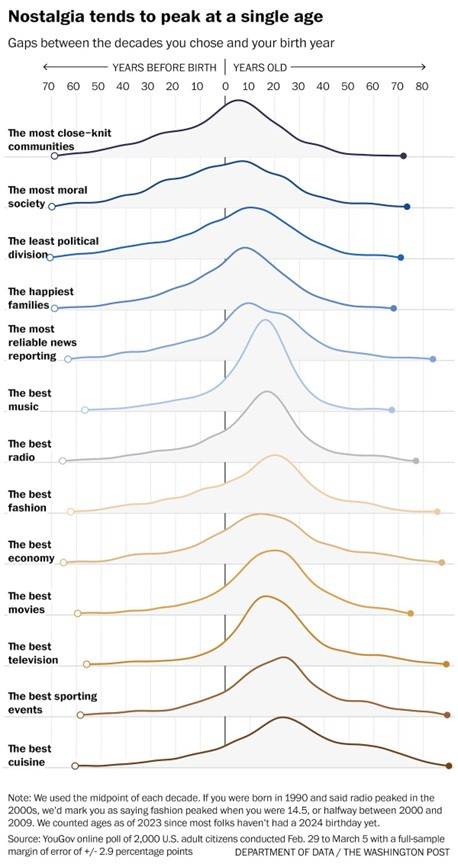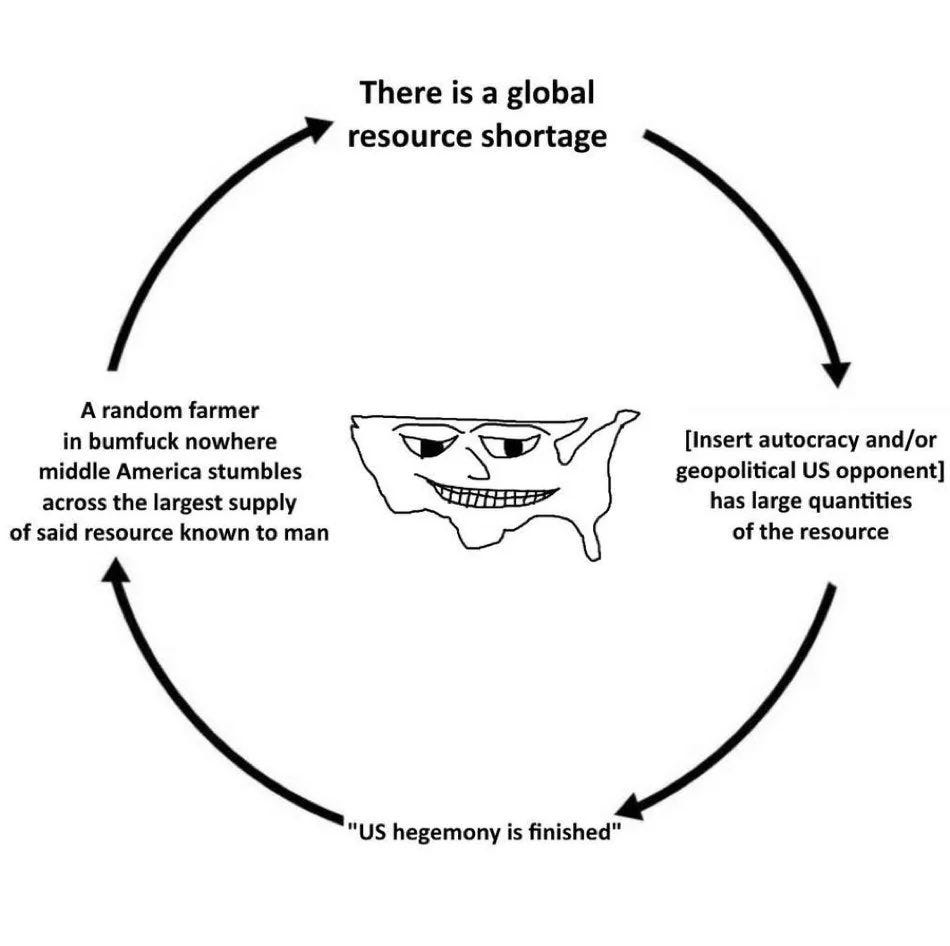Wednesday Links
Screwworms, adultery, & more
Great news: today’s inflation data came in way cooler than expected. We’ll cover that and more in our every-Friday Week in Review post. That’s only for paying subscribers. If that’s not you and you want it to be, just click the button below.
In the meantime, some links for your perusal.
LINKS
1. A YouTube creator is facing federal charges for having women in a helicopter shoot fireworks at him while he tried to drive away in a Lamborghini (video in the link). I thought this was a free country?
2. You might have heard that maternal mortality in the U.S. surged over the past few decades. It turns out this was due to a statistical artefact; states started to include a checkbox for pregnancy on death certificates, and as more states included this, the data captured more women who died while pregnant.
Instead of celebrating the fact that maternal mortality rates aren’t actually rising, the CEO of the American College of Obstetricians complained that it “would be an unfortunate setback to see all the hard work of health care professionals, policy makers, patient advocates, and other stakeholders be undermined.” Jerusalem Demsas has a long piece on the maternal mortality story, and Noah Smith has a shorter piece on “How many of our "facts" about society, health, and the economy are fake?”
3. Speaking of fake facts, a landmark study on Alzheimer’s disease is being retracted because the authors manipulated images in it (i.e., made up findings). “The study has been cited nearly 2500 times, and would be the most cited paper ever to be retracted.” Lot of this going around lately. My take—there should be harsher consequences for this kind of fraud.
4. For safety reasons, some people want the FAA to ban parents having children on their lap on flights instead of in their own seat. The FAA periodically reviews this suggestion and concludes that banning lap children would cause more parents to drive instead of fly, and significantly more children would die in those car rides than on airplanes. This is A+ policymaking. More regulators should think this way.
5. Almost everyone, regardless of age, thinks society peaked during the first two decades of their life.
Did music, the economy, movies, television, and food (Really?!?! Food?!?!) get worse, or was it just better being a teenager?
6. CEOs and CFOs who use Ashley Madison (a dating site for married people looking for affairs) are more than twice as likely to engage in corporate/professional misconduct. Police officers and financial advisors using the site are also significantly more likely to engage in professional misconduct. “These findings suggest that personal and workplace behavior are closely related.”
7. Speaking of Ashley Madison, a 2015 analysis found that over 99% of the women on the site were fake and that 99.9% of users were men.
8. Screwworms (a bug, not a euphemism for guys who use Ashley Madison) used to kill “millions of dollars’ worth of cattle a year in the southern U.S.”
So the USDA killed all the screwworms, and to keep them from coming back, they maintain “an international screwworm barrier along the Panama-Colombia border. The barrier is an invisible one, and it is kept in place by constant human effort. Every week, planes drop 14.7 million sterilized screwworms over the rainforest that divides the two countries. A screwworm-rearing plant operates 24/7 in Panama. Inspectors cover thousands of square miles by motorcycle, boat, and horseback, searching for stray screwworm infections north of the border. The slightest oversight could undo all the work that came before.”
The government should make an effort to highlight wildly successful (and science fiction-like) programs like this.
9. The U.S. beat Pakistan in the cricket world cup. Our team—I didn’t know we had one until this result—is full of part time players, and our captain, Sarabh Netravalkar, is a principal engineer at Oracle (that’s a prestigious, high paying gig). This is like a bunch of office workers from a country that doesn’t play baseball beating the U.S national baseball team.
10. The BLS is cutting the size of the Household Survey (source of the unemployment rate) from 60,000 households per month to 55,000 per month due to budget constraints. This will potentially make our unemployment rate data more volatile, which will potentially make it harder for our monetary policy makers to know what’s going on. On a related note, the BEA stopped producing its real-time credit card spending data due to budget constraints.
I’m all for responsible government spending, but come on. The BLS and BEA are a combined 0.01% of the federal budget.
11. For years, people fretted that we wouldn’t have enough lithium for a transition to electric vehicles. Then we found enough lithium in California’s Salton Sea—the world’s largest known lithium reserve—to support 375 million EV batteries. Then we found enough lithium underneath Pennsylvania to cover 30-40% of current U.S. demand.
This is in addition to the smaller but still massive lithium deposits we recently found in a volcanic crater on the Nevada-Oregon border and in Arkansas, Texas, and Louisiana—and all these discoveries occurred within the past year. The U.S. is undefeated when it comes to meeting the demand for ostensibly scarce resources.
12. I always wondered about the difference between name brand over the counter drugs and the cheap store brand alternatives. For CVS’ store brand, it looks like the difference is mold, bacteria, and a significantly higher recall rate than rival stores’ generic brands.
Looking Ahead
As mentioned above, we’ll have Week in Review out on Friday. We also published our Election Primer Part 2 on Monday and will have part 3 out at some point over the next few weeks.




